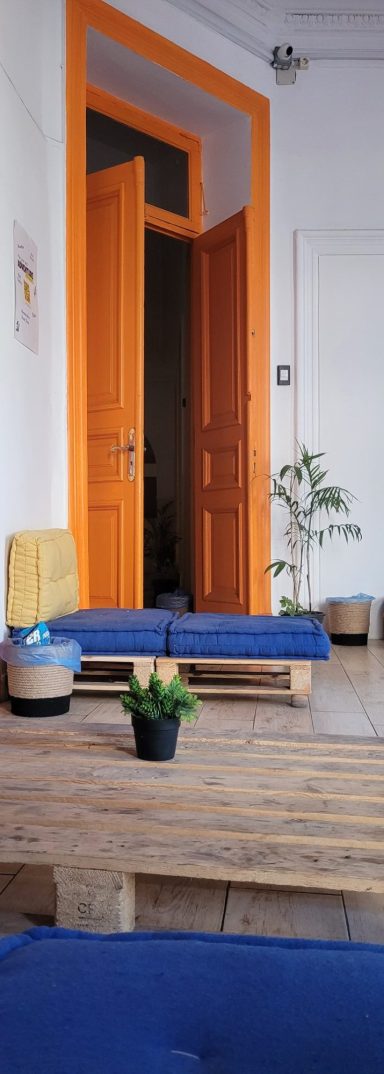Exile and Love
“To be rooted is perhaps the most important and least recognized need of the human soul,” writes Edward Said. He defines exile as an unhealable rift, a forced separation between a person and their native place, between the self and its true home.
Perhaps this is why it becomes almost instinctive for a refugee to fall in love with profound vulnerability. A refugee will not merely love you as a person but as the embodiment of a forbidden homeland. Love, then, is not only personal, it is homecoming.
I understand that being at the receiving end of such devotion can feel overwhelming, even scary... but I am more afraid of homelessness. I am afraid of the never ending dwelling.
ولكني تعبت من السفر
Again, in the words of Said: “What is true of all exile is not that home and love of home are lost, but that loss is inherent in the very existence of both". And so, a refugee loves you with an intensity shaped by the undeniable knowledge of loss, a love that is always aware it could vanish, because it was born from absence in the first place. This love does not measure what you give; it exists in spite of it. It endures, not because it is fed, but because it remembers what it means to have nothing. And so, a refugee loves you not for what you offer, but simply because they can.
لكنه الإبحار دون سفينةٍ
وشعورنا ان الوصول محال
Exile never becomes entirely normal. It always contains the potential to destabilize the self again. And so, Edward Said quotes Hugo of St. Victor: "The tender soul has fixed his love on one spot in the world, the strong man has extended his love to all places, the perfect man has extinguished his".
Thank God, I am no man. I am not even a tender soul because everywhere I go, I am brutally reminded that I do not belong. Every place I love, does not return this love back. My love is not fixed on one spot but not because it is extinguished, not because I am strong or perfect. It is because it is unrequited.
هو هذه الكف التي تغتالنا
ونُقَبِّلُ الكَفَّ التي تَغْتالُ

Common area at the Ithaka Raml Hostel in Alexandria City, June 2025.
A Companion reading to this piece is But I felt it anyway
What happened at the Ithaka Hostel in Alexandria
Nothing which was quite everything.
There is no grand story behind the hostel itself, only the weight of the name it carries.
The story of "Ithaka" comes from Homer's epic poem The Odyssey. Ithaka is the homeland of Odysseus, the hero of the Odyssey. After the Trojan War, Odysseus spends ten years trying to return to Ithaka, facing monsters, gods, temptations, and countless detours.
I learned of this as I was checking into the hostel at 9:30 PM after a two-hour bus ride from Cairo to Alexandria. The circumstances of the trip shall remain concealed for now.
I was overburdened, heartbroken, and dirty. I didn’t have the energy to receive the kindness and hospitality of the check-in agent. I was too drained to even fake a perfunctory smile. Yet, I smirked upon hearing the tale; there is a generative force in irony.
Ten years in exile made up an epic. What are we to make of 76 years and counting... amidst a genocide?
I too have faced monsters, gods and temptations. My entire life has been a never ending detour. But I neither know the way home nor am I propelled by a waiting love like Penelope's.
The agent went on: "It’s a metaphor. Wherever you go, nothing ever really takes the place of home."
I was no longer amused by the conversation. I finished the check-in process, took my keys and joined the introductory tour absent-mindedly.
I sat on the lower bunk, my designated space in a girls' dormitory, and burst into tears for no other reason than to relieve some of the compounded pain I was carrying.
Then I remembered, I was in Alexandria for the first time in my life. I wiped my tears, rinsed my face, and readied myself to be welcomed by the humid breeze off the Mediterranean.
I stepped into the bustling streets, busy with all sorts of noise and randomness and I walked aimlessly. I was trying to pass the time until he arrives. You see, I was meeting someone.
No, it was not a love story though it had all the makings of one. It was something quieter, more human, more primitive: a story about the desire of not wanting to be alone.
